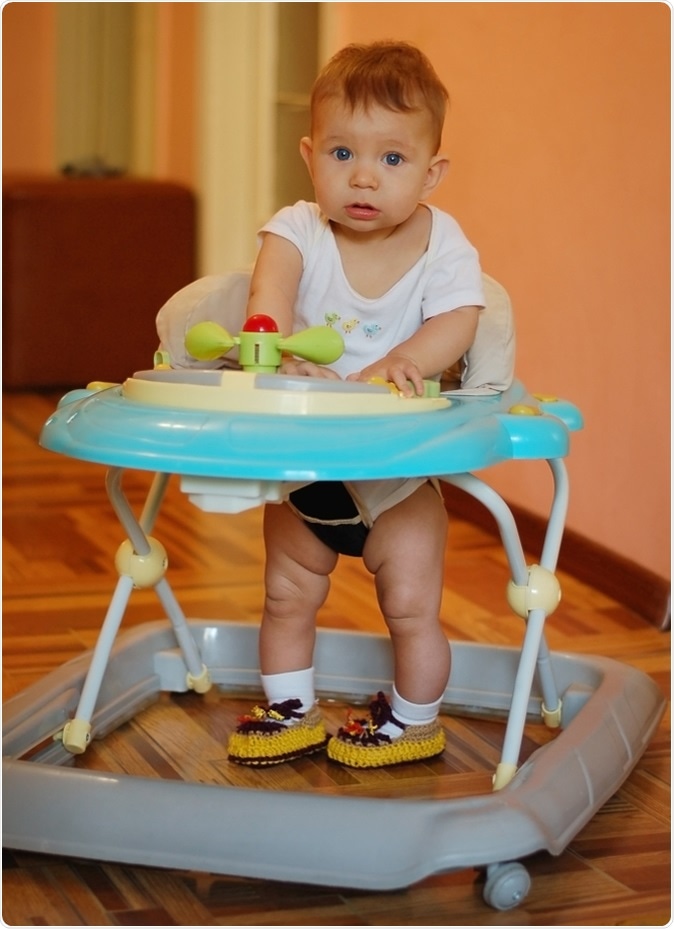According to a new study, hundreds of thousands of babies have been injured while using baby walkers. The results of the study appeared in the latest issue of the journal Pediatrics this week.
The team of researchers looked at emergency visits due to injuries caused while using infant walkers between 1990 and 2014. They found that over 230,000 children below the age of 15 months have been injured. Injuries range from minor scratches and cuts to skull fractures and fractured bones, the authors say. Three in four of these injuries have occurred as babies fell off the stairs while within the walkers.

Image Credit: Marian Fil / Shutterstock
According to the researchers federal safety standards were issued in 2010 and the incidence of these injuries have fall drastically since then (20,650 in 1990 to 2001 in 2014). However there are still a significant number of injuries they note. They add that these warnings tend to be effective initially but with time they tend to fade out unless reiterated. The article says that between 2001 and 2010, there have been at least 10 infant walker recalls because these failed to “meet the stair-fall prevention requirement”.
The authors write, “Given that only an estimated 10 percent of recalled children’s products are properly corrected, replaced, or returned by consumers, many noncompliant infant walkers remain in homes today. In addition, although infant walkers that were purchased before 2010 will eventually be discarded, the mandatory standards will not be able to eliminate the dangers associated with these older products that may still remain in use.” “Infant walkers remain an important and preventable source of injury among young children, which supports the American Academy of Pediatrics’ call for a ban on their manufacture and sale in the United States,” the researchers added.
On analysing the injuries the researchers noted that around 90 percent of all the injuries were sustained in the head and neck of the babies. Over half of these injuries were soft tissue injuries. A quarter of all the injuries were concussion related injuries. They explain that parents initiate the babies into infant walkers to help their children walk and move around. However studies have shown that use of the walker often delays mental as well as motor development of the babies. They warn that putting babies in walkers give parents a false sense of security when actually the child could be in a dangerous situation.
The American Academy of Pediatrics has called for a ban on infant walkers citing that Canada already has a similar ban in place. Dr. Benjamin Hoffman, a pediatrician who chairs the American Academy of Pediatrics Committee on Injury, Violence and Poison Prevention in a statement said, “I view infant walkers as inherently dangerous objects that have no benefit whatsoever and should not be sold in the U.S.” Dr. Gary Smith, director of the Center for Injury Research and Policy at Nationwide Children’s Hospital in Columbus, Ohio, and study co-author added that these walkers give the infants “quick mobility – up to four feet per second”. This is too fast for babies “before they are developmentally ready” he said.
“Baby walkers remain a serious and preventable source of injury to young children and should not be used. There are safer alternatives, such as stationary activity centers that spin, rock, and bounce, but do not have wheels, and good old-fashioned belly time, where a child is placed on their belly on the floor and allowed to learn to gradually push themselves up, then crawl and eventually walk,” said Smith.
Source: http://pediatrics.aappublications.org/content/early/2018/09/13/peds.2017-4332